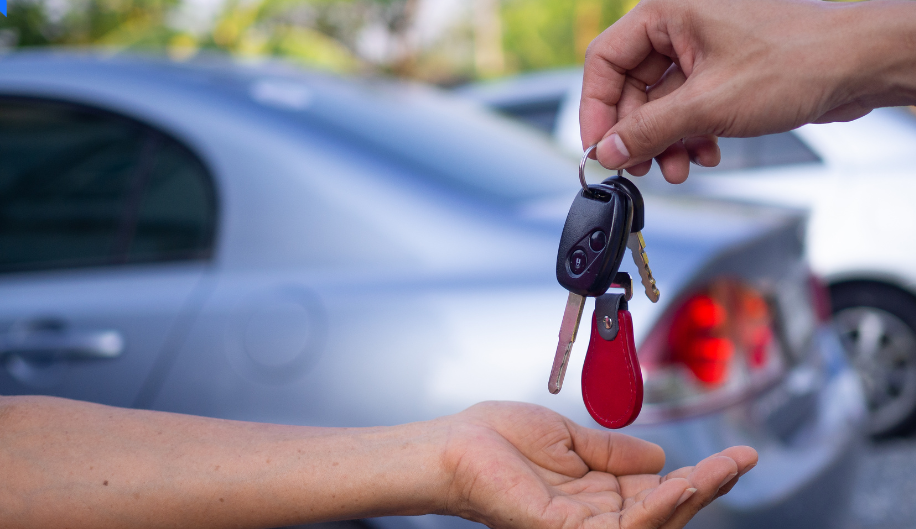
Key Takeaways
- Car repossession is a legal process in Canada where a lender takes back possession of a vehicle from a borrower who has failed to make their loan payments.
- If you're struggling to make your auto loan payments, there are a few proactive steps you can take to help prevent your car from being repossessed.
- The number of missed payments that can lead to a car repossession varies depending on the terms of the loan agreement and the policies of the lender.
- A car repossession can significantly lower your credit score, acting as a red flag to potential lenders that may view you as a higher-risk borrower.
- If you experience car repossession, there are actions you can take to start rebuilding a positive credit history over time, including making at least the minimum payments on all your bills by the due dates.
For many, having a car is a necessity–not a luxury–especially if you rely on your vehicle to get you to work. But having a vehicle isn’t cheap. When you factor in the car payments, insurance, gas, repairs and regular maintenance, it's often one of the biggest monthly expenses following your rent or mortgage.
With the increased cost of living in Canada, there's less wiggle room in budgets, making it tough for many to keep up with car payments. At Credit Canada, we understand this can be daunting and have received increased calls from Canadians who are having their cars repossessed because of the financial situations they are in.
"Certainly during this time of inflation and people struggling to make ends meet we are hearing more about these experiences with people calling and their stories are often heartbreaking."
Becky Western-Macfadyen, Financial Coaching Manager, Credit Canada
~ Excerpt from an interview with CTV News Toronto.
Beyond the immediate stress of losing your mode of transportation, there's also the concern about how repossession will impact your credit. Read on to learn how car repossession affects your finances, how to avoid it, and what to do if it happens to you.
Car Repossession in Canada
Car repossession is a legal process in Canada where a lender takes back possession of a vehicle from a borrower who has failed to make their loan payments. This is permitted because a car loan is a secured loan, meaning the lender holds a stake in the vehicle until you repay the entire loan amount.
When you take out a loan to purchase a vehicle, you sign a financing agreement with the lender. This agreement outlines the terms of the loan, including the repayment schedule. If you miss payments or fail to comply with the terms of the financing agreement, the lender has the right to repossess your car. This is known as an involuntary repossession. Voluntary repossession occurs when the borrower voluntarily returns the vehicle to the lender because they can no longer afford to make payment and agrees to surrender the vehicle.
How Many Missed Payments Can Lead to Repossession?
The number of missed payments that can lead to an involuntary repossession in Canada varies depending on the terms of the loan agreement and the policies of the lender. Typically, lenders consider a borrower to be in default after missing several consecutive payments. However, the specific threshold for repossession can vary, and lenders may also consider factors such as your payment history and communication efforts before initiating a repossession. Below are the key stages of car repossession:
|
Notice of Default |
If you miss multiple payments, the lender will typically provide you with a notice of default, giving you a chance to catch up on the missed payments. |
|
Repossession |
If you fail to repay the outstanding payments, the lender can take away your vehicle, either with or without your consent, depending on provincial laws. |
|
Potential Sale of Vehicle |
Once the lender repossesses your vehicle, they can sell it to cover the unpaid loan balance. However, you may be responsible for any leftover debt if the sale doesn't cover it all–including any repossession fees and expenses incurred by the lender. In some provinces, the lender has to give you notice before selling the vehicle. This notice is your final chance to settle the debt and reclaim your car. |
Struggling to keep up with car payments and other expenses? Our debt management services can help you consolidate your debt and reduce your interest rates. Learn more about our Debt Management services.
The Impact of Car Repossession on Your Credit
Car repossession can cast a heavy shadow over your financial reputation. “A repossession will stay on your record for seven years, and that’s whether it's a voluntary or an involuntary repossession. If your vehicle is repossessed it will also make it harder for you to qualify for a car loan in the future," Western-Macfadyen said.
A car repossession can significantly lower your credit score, acting as a red flag to potential lenders that may view you as a higher-risk borrower. The number of points your credit score will drop varies depending on your financial situation. Your credit rating–an evaluation of how you managed the payments for that account–will drop to an R-8, which is only one above filing for bankruptcy. This makes it more difficult to secure other loans and forms of credit in the future, such as a mortgage or personal loan. And even if you do get approved, you might face higher interest rates or stricter terms.
How to Fix Your Credit After Repossession?
If you've recently had to deal with car repossession, we understand it can feel overwhelming and nerve-wracking thinking about what it has done to your credit. However, it's important to remember you can rebuild your credit.
To do so, it’s crucial for you to make at least the minimum payments on all your bills by the due dates. Setting up automatic payments or reminders can help ensure you never miss a payment, making it easier to stay on track. Paying your bills on time will help ensure you’re not accumulating more debt and demonstrates to lenders that you can responsibly manage borrowed money.
"After repossession, whether voluntary or not, if there is a leftover balance that the borrower is held liable for after the vehicle is sold. They can contact Credit Canada to inquire about our Debt Consolidation Program to help pay the remaining balance. The best person to “face” the problem is also the best person to “fix” the problem and that is you!"
Kelly O'Leary, Credit Counsellor, Credit Canada
To help rebuild your credit, you can also consider applying for a secured credit card. These cards require a deposit as collateral and are designed for those looking to improve their credit history. By using the card responsibly and making timely payments, you can gradually improve your credit score over time.
In addition, you should regularly obtain a copy of your credit report and review it carefully. Look for any errors or inaccuracies that may be negatively impacting your credit score. If you spot any discrepancies, file a dispute with the credit bureau to have them corrected.
Remember to be patient and persistent when it comes to improving your credit. Rebuilding credit takes time, and there are no quick fixes. But by staying committed to your financial goals and sticking to a repayment plan, your credit can recover from the negative impact of car repossession.
Learn how you can rebuild your credit score quickly with expert advice from our certified Credit Counsellors. Start building your credit today!
How to Avoid Repossession
If you're finding it hard to make your auto payments, there are a few proactive steps you can take to help prevent your car from being repossessed, such as:
- Communicate with your lender as soon as you anticipate missing a payment. Notifying them in advance allows for potential solutions to be explored, and could avoid more severe consequences down the line.
- Explore other options like loan modification or forbearance, which can provide temporary adjustments to your payment terms to alleviate immediate financial strain while ensuring your vehicle isn’t taken away. This could mean extending the loan term, reducing the interest rate, adjusting the monthly payment amount, or temporarily suspending payments for a set period.
- Revisit your budget so you can allocate more funds toward your car payments. Scrutinize your expenses closely to identify areas where you can trim unnecessary spending and redirect it towards essential payments. There are many online budgeting tools and apps that can help with this, including Credit Canada’s free Budget Planner.
What to Do if Your Car is Repossessed
If your car gets repossessed, it's crucial to know what could happen if you don't take action. If you don't reclaim your car, the lender can sell it to cover what you owe. However, if the sale doesn't bring in enough money to pay off your debt, you’ll be on the hook for the deficiency balance.
While repossession laws can vary in each province, it’s important to know that car owners have legal rights to ensure a fair repossession process. These include receiving notice before it occurs, the right to a peaceful repossession without force or intimidation, and the opportunity to retrieve personal belongings from the vehicle. If issues arise, owners have the right to dispute the repossession through legal means.
Can I Get My Car Back After Repossession?
If your vehicle has been repossessed in Canada, you might wonder if there's any chance of getting it back. The possibility largely depends on provincial laws and the specific circumstances of your repossession. But for the most part, it’s highly unlikely.
In some cases, you may have the option to redeem your car by paying off the outstanding debt and any associated fees within a specific time frame. The amount of time you have to do so varies, but typically ranges from a few days to a couple of weeks. However, it’s assumed that securing the required funds by the deadline would be a challenge, given that your car was repossessed due to missed payments in the first place.
Resources and Support: Getting Back on Track
Losing your car to repossession can feel like a setback, but it's not the end of the road. If you’re in this situation and your credit takes a hit, there are actions you can take to start rebuilding a positive credit history over time. Be sure to pay the minimum amount on all your debts by the due dates and consider applying for a secured credit card to help improve your credit. It’s also important to regularly obtain a copy of your credit report and dispute any errors to help ensure your credit history accurately reflects your financial situation.
We understand that having your car repossessed means you’re likely struggling to pay other bills too. Whether you’re looking for debt management advice or want to improve your credit score, we can help you navigate financial challenges. Contact Credit Canada and book a free credit counselling session with one of our certified non-profit counsellors. Call 1-800-267-2272 to get started today, or talk to us on live chat for a free consultation.

Frequently Asked Questions
Have a question? We are here to help.


.png?width=128&height=128&name=Untitled%20design%20(2).png)
.png?width=128&height=128&name=Untitled%20design%20(5).png)






